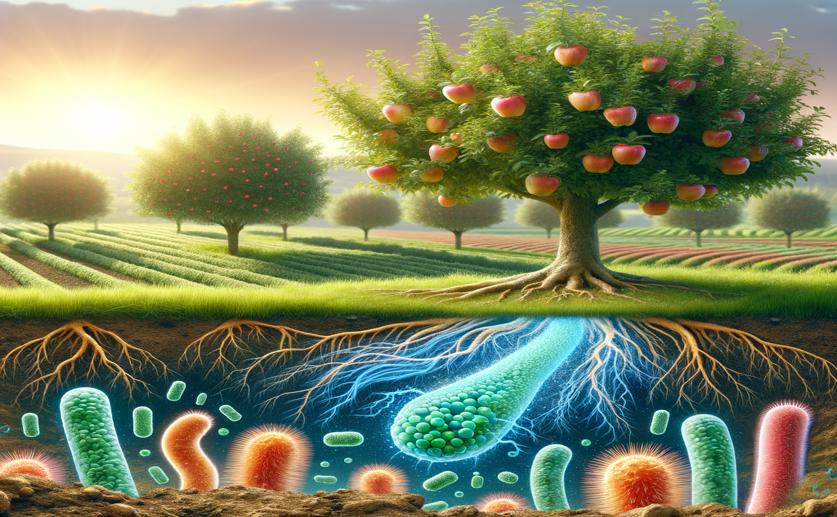
Dopamine Reduces Apple Toxicity by Changing Soil Bacteria Structure and Function
Jim Crocker
31st May, 2024

Image Source: Natural Science News, 2024
Key Findings
- The study by Hebei Agricultural University focused on apple plants facing phloridzin stress due to continuous monoculture
- Dopamine significantly reduced the growth inhibition caused by phloridzin by lowering harmful reactive oxygen species (ROS) levels
- Dopamine improved photosynthesis, nitrogen transport, and enriched beneficial microbes in the soil, enhancing apple plant growth and health
References
Main Study
1) Dopamine Alleviates Phloridzin Toxicity in Apple by Modifying Rhizosphere Bacterial Community Structure and Function.
Published 29th May, 2024
https://doi.org/10.1021/acs.jafc.4c02276
Related Studies
2) Silencing a phloretin-specific glycosyltransferase perturbs both general phenylpropanoid biosynthesis and plant development.
3) MdUGT88F1-Mediated Phloridzin Biosynthesis Regulates Apple Development and Valsa Canker Resistance.
4) The Jasmonate-Activated Transcription Factor MdMYC2 Regulates ETHYLENE RESPONSE FACTOR and Ethylene Biosynthetic Genes to Promote Ethylene Biosynthesis during Apple Fruit Ripening.



 31st May, 2024 | Jenn Hoskins
31st May, 2024 | Jenn Hoskins